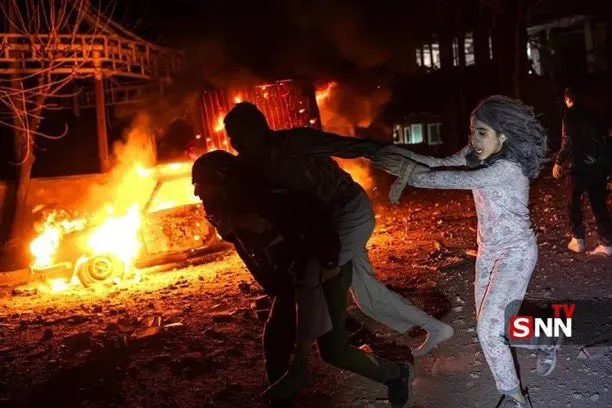 The U.S.'s new public enemy No. 1 in Afghanistan is one of its own making. Ten years into the occupation of Afghanistan, American officials describe the militia led by Jalaluddin Haqqani as the country's deadliest insurgent group, responsible for a slew of particularly bold attacks, including the day-long assault three weeks ago on the U.S. embassy in Kabul.
The U.S.'s new public enemy No. 1 in Afghanistan is one of its own making. Ten years into the occupation of Afghanistan, American officials describe the militia led by Jalaluddin Haqqani as the country's deadliest insurgent group, responsible for a slew of particularly bold attacks, including the day-long assault three weeks ago on the U.S. embassy in Kabul.
But Haqqani's rise to power can be traced directly back to the secret, multi-billion-dollar U.S. campaign to create a radicalized and well-equipped army of Islamic jihadists -- known as the mujahideen -- to lead a war against the Soviet Union in Afghanistan in the 1980s.
Back then, when a top U.S. foreign policy goal was to bog the invading Soviets down in Afghanistan, the ferocious Haqqani was one of the CIA's favorite commanders, showered with money and shoulder-fired missiles and other weapons -- and sent out to repel the foreign occupiers.
"We facilitated his rise -- we and the Saudis and Pakistani intelligence," said Steve Coll, author of "Ghost Wars: The Secret History of the CIA, Afghanistan and Bin Laden, From the Soviet Invasion to September 10, 2001."
"In Afghanistan, what goes around comes around is sort of the lesson of the last 30 years," he said.





 As groups of families and others gathered Sunday evening at cafes around Niloofar Square—a middle-class area...
As groups of families and others gathered Sunday evening at cafes around Niloofar Square—a middle-class area... We shouldn’t beat around the bush: Donald Trump’s and Benjamin Netanyahu’s military attack on Iran is...
We shouldn’t beat around the bush: Donald Trump’s and Benjamin Netanyahu’s military attack on Iran is... Events are still unfolding rapidly across the Middle East, so here's a quick recap: The death...
Events are still unfolding rapidly across the Middle East, so here's a quick recap: The death...






























